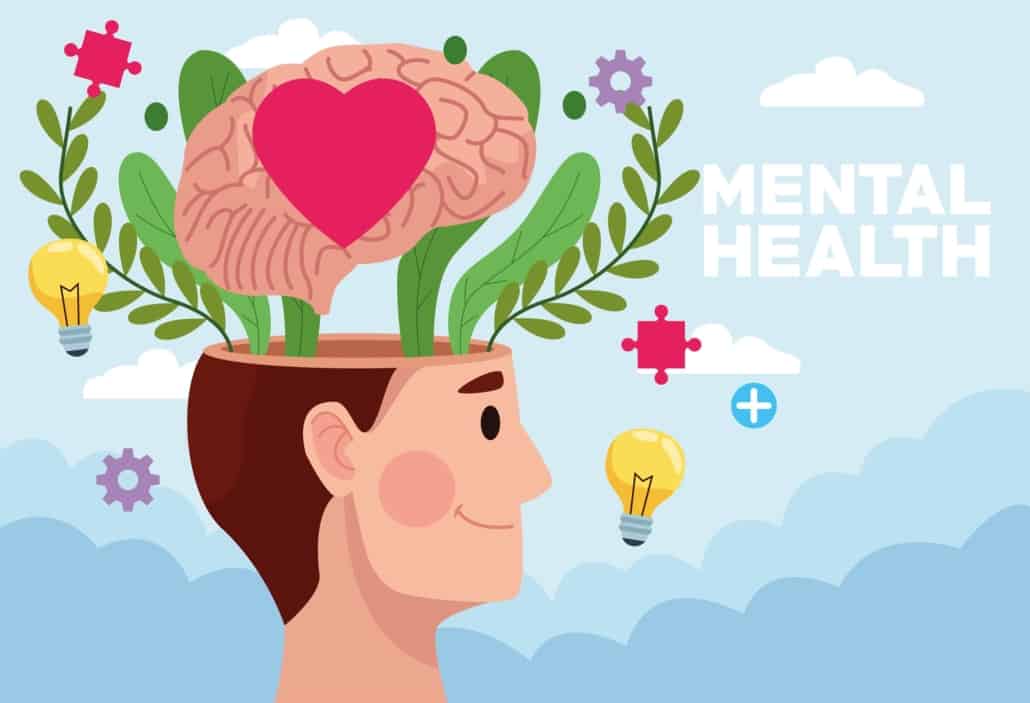Mental health in sport: A guide for coaches and athletes
When compared to the general population, athletes are more likely to be psychologically distressed. So what can they, and the people around them, do to monitor and improve their mental health?
Mental health for coaches and athletes
Life over the past two years has been different, to say the least. Our day-to-day lives have changed drastically and upon reflection, it’s really been a time of learning and self-discovery. We’ve learned that working from home can be a good thing and can even help our productivity. We’ve discovered how much we (do or don’t) enjoy the company of other people. And some of us have even uncovered hidden talents through the adoption of new hobbies – I, for one, have become very good at making bad rye bread. But something we’ve collectively come to realise and appreciate is the importance of mental health and the need to better understand and look after our minds.
The pandemic has brought this importance to the surface even more than in the past, with the prevalence of mental ill health and disorders getting worse.
What is mental ill health?
The term mental health is used a lot – whether in a news report, an email sent around to staff from HR, or in general conversation, potentially muddying the waters about what it really is. Just to make it clear, the World Health Organisation defines mental health as ‘a state of wellbeing in which an individual realises his or her own abilities, can cope with the normal stresses of life, can work productively and is able to make a contribution to his or her community’. By extension, mental ill health would be the opposite of each of these things.
There is no way of pinpointing what leads to an individual having mental health issues – we all respond to life events and experiences in vastly different ways. But things like childhood trauma, experiencing discrimination, severe long-term stress, or experiencing significant loss, are often attributed to mental ill health among the general population.
Regardless of where we come from, mental health – notably mental ill health – is a big issue these days. Here in Australia, the most recent National Survey of Mental Health and Wellbeing (2007) reported nearly one in two people aged between 16-85 had experienced a mental disorder at some point during their life. Further, one in five of these same people experienced a mental disorder in the previous 12 months prior to this survey. With the results of an updated National Survey of Mental Health and Wellbeing due to be released sometime in the next 12 months, it’s likely we will see a rise in these numbers.
Mental health among athletes
At the end of the day, athletes are human beings and are just as susceptible to experiencing mental ill health as everyone else. The difference between an athlete and the mid-management employee who has a small family, a mortgage, various bills to pay, and other everyday life stressors, is the athlete might have these same issues in addition to sport-specific stressors. Those of us in the general population don’t really have to worry about the impact of long-term injuries, the constant attention from the public and media, or pressure of constantly having to be at the top of our game.
It’s no wonder then that when compared to the general population, athletes are more likely to be psychologically distressed. Furthermore, more than half of Australian athletes have experienced some form of mental health problem like depression, eating disorders, or social anxiety. We see more and more stories these days of just how much mental ill health is impacting top-performing athletes, think most recently of Naomi Osaka and Simone Biles.
Now it’s unlikely that mental ill health will ever disappear, particularly within the athletic environment, but clearly, athletes need help when it comes to dealing with their mental health. Further still, athletes may not even recognise they are suffering from mental ill health. Again, they’re still human and most of us have trouble admitting we need help or why we need it. Although many clubs and organisations employ mental health professionals, some athletes may not take up the offer of these individuals. It might be that an athlete is much more comfortable bringing this up with their coach.
The question is then, what role does the coach play in the mental health of an athlete?
The role of the coach in preventing mental ill health among their athletes
Without question, the coach is one of the most influential individuals in an athlete’s lifetime, and therefore they have a significant role in an athlete’s mental health. This has been the topic for many a conversation within academic and practitioners’ environments for some time, and there is a lot of information out there that offers guidance.
What should I be looking for?
Given that many athletes often don’t, or are reluctant to, directly communicate their mental health issues to anyone, coaches need to be more knowledgeable about when their athletes have mental health concerns. In many cases, coaches spend just as many, if not more, hours in the week with the athlete than their loved ones, so they are in a really good place to recognise how their athletes are mentally.
Some of the common issues surrounding mental ill health and its lifecycle that coaches should know about and may find useful include:
- The early warning signs that players consider to be the potential root of their mental ill health. This might include stressors linked to performance like not living up to expectations, or being away from loved ones and feeling isolated for long periods of time.
- Fluctuations of mental health which might include some of the early stressors combined with additional ones that negatively (e.g., views of the media, long international tours) or positively (e.g., enjoying playing the sport, being given some on-field responsibility) impact their mental health.
- The build-up to a severe incident which is characterised by an impactful and key period of time that was the precursor to the negative effect on their mental health. The authors highlighted this might include a death in the family that coincides with being away on tour.
- The severe incident or key event. This is where the athlete appears to be at their lowest point with regards to their mental health. It’s the point where they can no longer suppress their feelings or where it becomes much more public. There is no one way in which this can be characterised and it could be triggered by even a minor incident. Players are often quoted as saying things like “by far the worst [experience of my life]” and “[being] vulnerable and exhausted”. This incident could also signal the end of an athlete’s playing career.
- The recovery process is all about how the players dealt with the severe incident that led to their mental ill health. This is likely to differ depending on the individual, but one of the common examples used in this study was speaking with a professional such as a psychologist.
- Each player experienced some form of relapse of mental ill health, in some cases after attempting to restart their playing career at the highest level but ultimately led to their retirement.
What can I do to support my athletes?
There is no one specific way or intervention that will lead to positive mental health. It is about knowing your athlete/s and fine-tuning your behaviours and the environment to their needs and how you think they’ll best respond. It’s important coaches are aware of the different contexts their athletes might find themselves in with regards to their mental health (e.g., the early warning signs, fluctuations, recovery after mental ill health), so they can create an effective environment that promotes positive mental health. Below are some examples of what this might include, but I would strongly encourage you to have a read through this article to get the full picture.

The role of the athlete in managing their mental ill health
Although coaches can – and should – be supporting their athletes and any mental ill health issues they might have, at some point the athletes will need to address and manage these issues themselves.
As I mentioned earlier, athletes are just human beings and they are exposed to many of the same potential traumatic events that can lead to mental ill health as the rest of us – they just have the pressures of sport to deal with as well. This means how they deal with and manage their mental health is not really any different to the general population, and the best way is to get out in front of it. In other words, the sooner an athlete recognises and intervenes with any mental ill health they might be feeling, the sooner and easier it can be in avoiding any long-term and severe mental health disorders.
Getting on top of mental issues as soon as possible was recognised by the International Olympic Committee Mental Health Group, who, one could argue, have the best interest of all athletes in mind. With that being the case, this group offered up a number of ideas on how athletes can identify and cope with any mental ill health issues they might have. These are just a few to consider:
What does this all mean?
As coaches, we know our athletes are going to experience periods of pure joy as well as sadness, and for the most part, we cannot always control this to nurture a positive mental health status. What we can do, though, is have a better understanding of the various contexts and situations that might have the biggest impact on the mental health of our athletes and modify the environment and our own behaviours accordingly.
As athletes, we may not always have the confidence to speak up when we have mental ill health concerns, but recognising what might trigger a negative reaction to our mental health is the first step in managing this. Trust that your coach has your best interests at heart and they are more than just someone to offer advice about your forehand.



